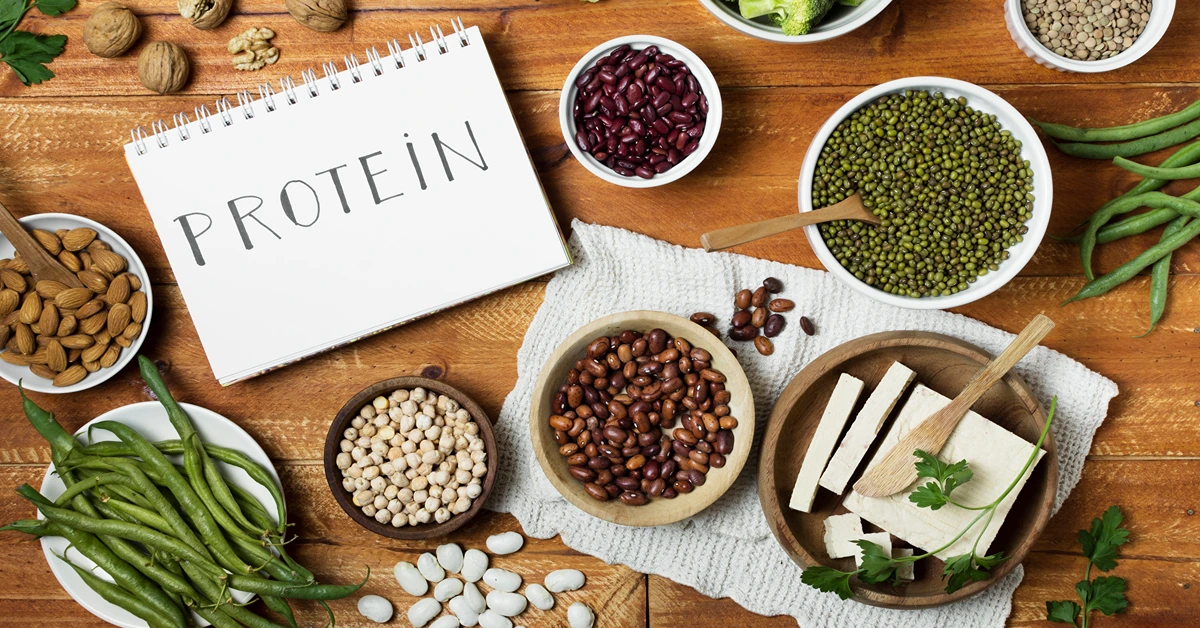Protein is an important nutrient that helps build muscles, repair body tissues, and keep us healthy. Eggs are known as an easy and nutritious source of protein. But what if we don’t eat eggs—maybe because of an allergy, a vegetarian or vegan lifestyle, or just for variety?
Don’t worry! There are many other protein sources that are just as good as eggs. Here are some great alternatives we can try:
1. Lean Meat
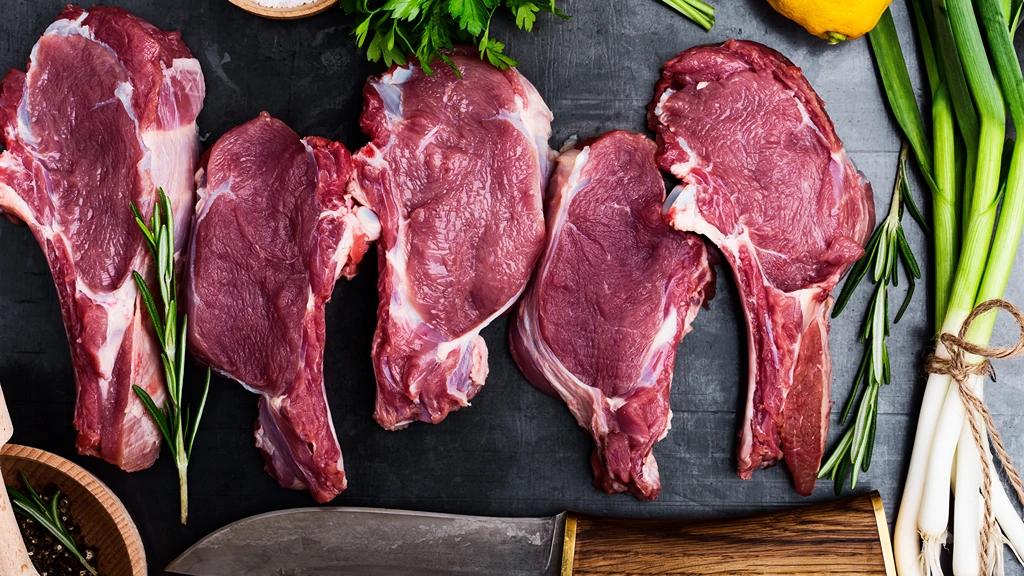 Lean meats like skinless chicken, lean beef, and turkey are great sources of protein. They also contain iron, vitamin B12, and zinc, which help support your immune system. To give us a better idea, here’s a look at the number of calories found in a 100-gram serving of each of these meats:
Lean meats like skinless chicken, lean beef, and turkey are great sources of protein. They also contain iron, vitamin B12, and zinc, which help support your immune system. To give us a better idea, here’s a look at the number of calories found in a 100-gram serving of each of these meats:
- 100g cooked chicken breast has about 30g of protein
- 100g lean beef (like sirloin) has around 20g of protein
- 100g turkey breast contains about 17g of protein
For lower-fat options, we can also try rabbit or horse meat, which are also high in protein.
Try This Low-Fat Grilled Lemon Chicken Recipe >>
2. Fish and Seafood
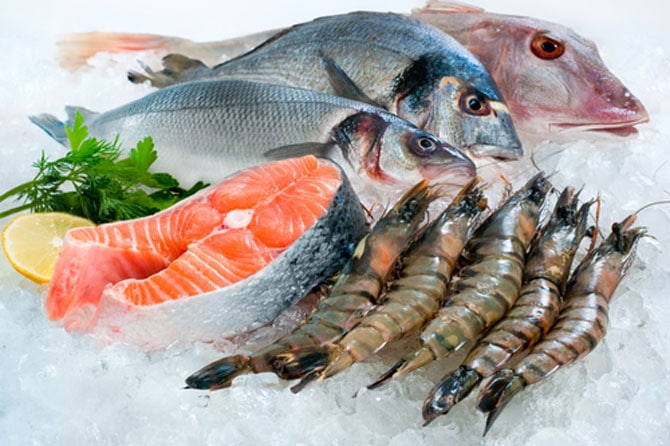 Fish is a great source of protein and healthy fats like omega-3, which are good for our heart and brain. Both saltwater and freshwater fish—like salmon, tuna, sardines, milkfish, and gourami—are rich in protein. Other seafood like shrimp, squid, and octopus also provide a lot of protein. But be careful—some fish may contain mercury, so it’s important to choose wisely.
Fish is a great source of protein and healthy fats like omega-3, which are good for our heart and brain. Both saltwater and freshwater fish—like salmon, tuna, sardines, milkfish, and gourami—are rich in protein. Other seafood like shrimp, squid, and octopus also provide a lot of protein. But be careful—some fish may contain mercury, so it’s important to choose wisely.
Here’s the protein content in 100 grams of some fish:
- 100g Salmon has about 25g
- 100g Canned Tuna in water has about 25g
- 100g Sardines in water has about 25g
- 100g Milkfish or Bandeng has about 20g
- 100g Gourami has about 18g
Try This Crispy Yellow Spiced Bandeng Presto Recipe >>
3. Dairy Products
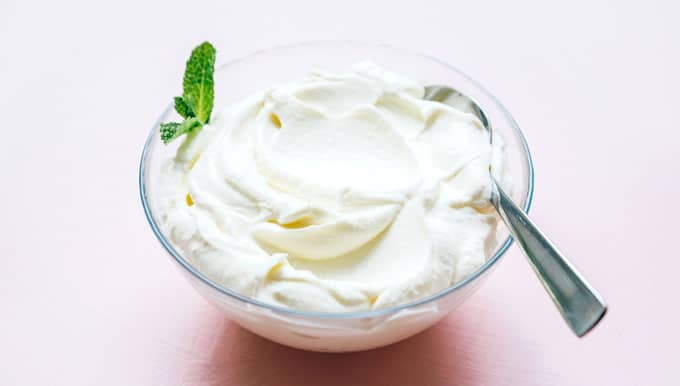 Milk, cheese, and yogurt are good sources of protein, calcium, and vitamin D, which help keep our bones strong. For a healthier option, choose low-fat products or Greek yogurt to get more protein. We can also pick high-protein milk that includes calcium and HMB (Hydroxymethylbutyrate), which helps maintain muscle strength and prevents muscle loss.
Milk, cheese, and yogurt are good sources of protein, calcium, and vitamin D, which help keep our bones strong. For a healthier option, choose low-fat products or Greek yogurt to get more protein. We can also pick high-protein milk that includes calcium and HMB (Hydroxymethylbutyrate), which helps maintain muscle strength and prevents muscle loss.
Here are the details of the protein content in milk and yogurt:
- 1 glass of low-fat milk has about 8 grams of protein
- 1 cup of fat-free Greek yogurt has around 20 grams of protein
Try This Easy Homemade Yogurt Recipe >>
4. Tempeh and Tofu
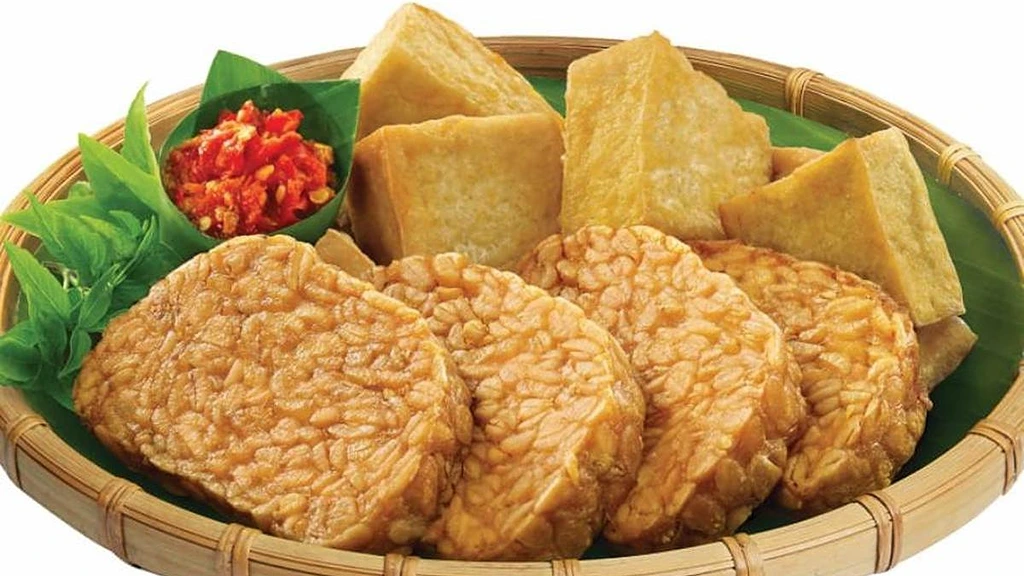 These two traditional Indonesian foods, tempeh and tofu, are made from soybeans and are rich in plant-based protein. Tempeh also has natural probiotics that are good for digestion. Even though they are made in different ways, both tempeh and tofu contain isoflavones—antioxidants that help protect the body from damage caused by free radicals.
These two traditional Indonesian foods, tempeh and tofu, are made from soybeans and are rich in plant-based protein. Tempeh also has natural probiotics that are good for digestion. Even though they are made in different ways, both tempeh and tofu contain isoflavones—antioxidants that help protect the body from damage caused by free radicals.
- 100 grams of tempeh or tofu has about 12 to 20 grams of protein.
Try This Tempeh Burger Recipe >>
5. Mushrooms
 Mushrooms are low in calories but high in protein and fiber. They also contain important antioxidants and minerals like selenium, zinc, potassium, magnesium, and phosphorus. These nutrients help boost the immune system, support cell growth, and keep the heart healthy. You can eat many types of mushrooms, such as shiitake, enoki, oyster, button, straw, and wood ear mushrooms.
Mushrooms are low in calories but high in protein and fiber. They also contain important antioxidants and minerals like selenium, zinc, potassium, magnesium, and phosphorus. These nutrients help boost the immune system, support cell growth, and keep the heart healthy. You can eat many types of mushrooms, such as shiitake, enoki, oyster, button, straw, and wood ear mushrooms.
- 100 grams of mushrooms contain about 3 grams of protein.
Try this filling Mushroom Barley Soup Recipe >>
Other mushroom recipes here >>
6. Nuts and Seeds
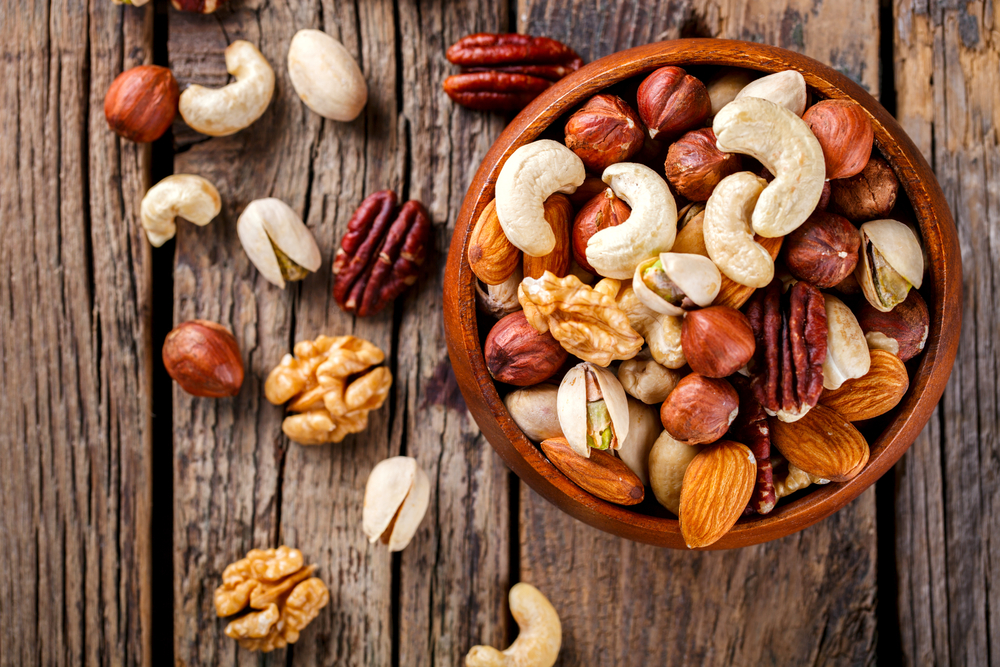 Almonds, red beans, peanuts, lentils, and edamame are all plant-based foods that are high in protein and easy to find. They’re also rich in fiber, which helps with digestion and keeps you full longer. Seeds like chia seeds and flaxseeds are also high in fiber and protein, making them great for a healthy diet. They’re rich in omega-3 and can be added to smoothies, bread, or oatmeal.
Almonds, red beans, peanuts, lentils, and edamame are all plant-based foods that are high in protein and easy to find. They’re also rich in fiber, which helps with digestion and keeps you full longer. Seeds like chia seeds and flaxseeds are also high in fiber and protein, making them great for a healthy diet. They’re rich in omega-3 and can be added to smoothies, bread, or oatmeal.
Here’s the protein content per 100 grams:
- 100 grams Almonds contain about 20g
- 100 grams Cooked lentils contain about 9g
- 100 grams Red beans contain about 24g
- 100 grams Peanuts contain about 26g
- 100 grams Edamame contain about 11g
- 100 grams Chia seeds contain about 15g
Try This Almond Cheese Cookies Recipe >>
7. Quinoa
Quinoa is a special type of grain because it has all nine essential amino acids that the body needs, just like meat does. This makes it a complete protein, which is rare for plant-based foods. That’s why quinoa is a great option for people who don’t eat meat, such as vegetarians and vegans. It’s not only healthy, but also easy to cook and can be used in many dishes like salads, soups, or as a rice replacement.
- 100 grams cooked quinoa contains about 8 grams of protein
Try This Superfood Quinoa Bowl Recipe >>
Not eating eggs doesn’t mean you’ll miss out on protein. By eating a variety of the foods mentioned above, you can still get enough daily protein and enjoy other health benefits too. Whether the protein comes from animals or plants, what matters most is keeping a balanced diet that fits your body’s needs.
If you have thoughts on other protein sources or want to share your experience with eating protein as part of a healthy lifestyle, feel free to comment below!


